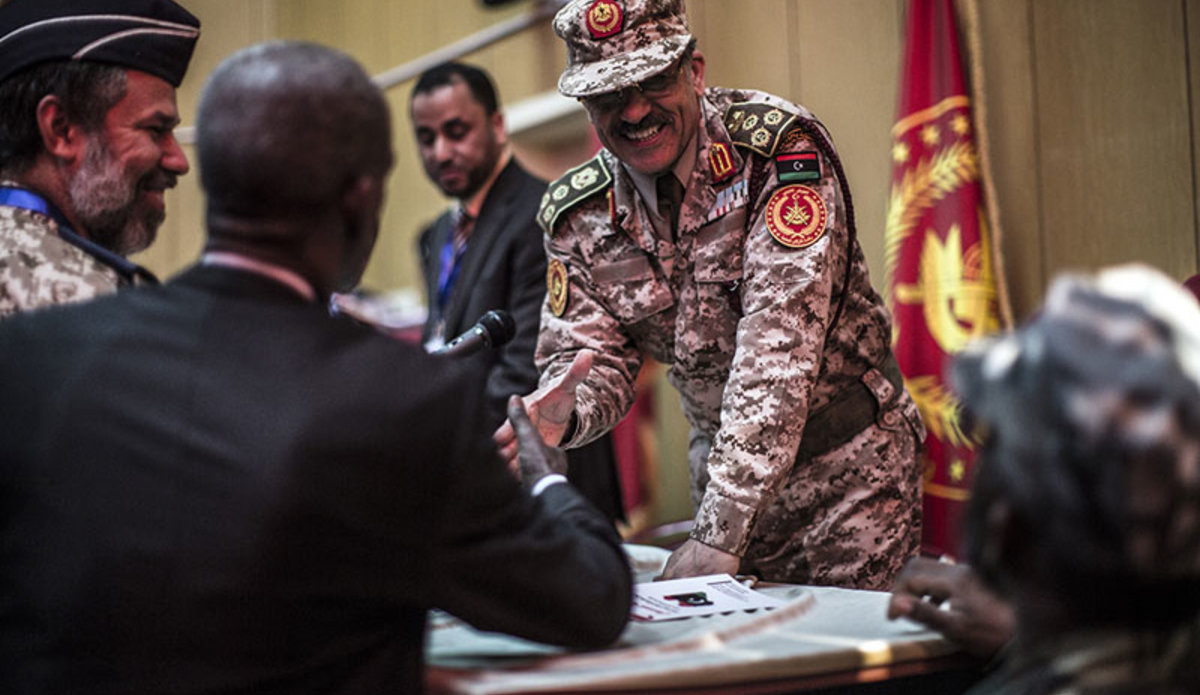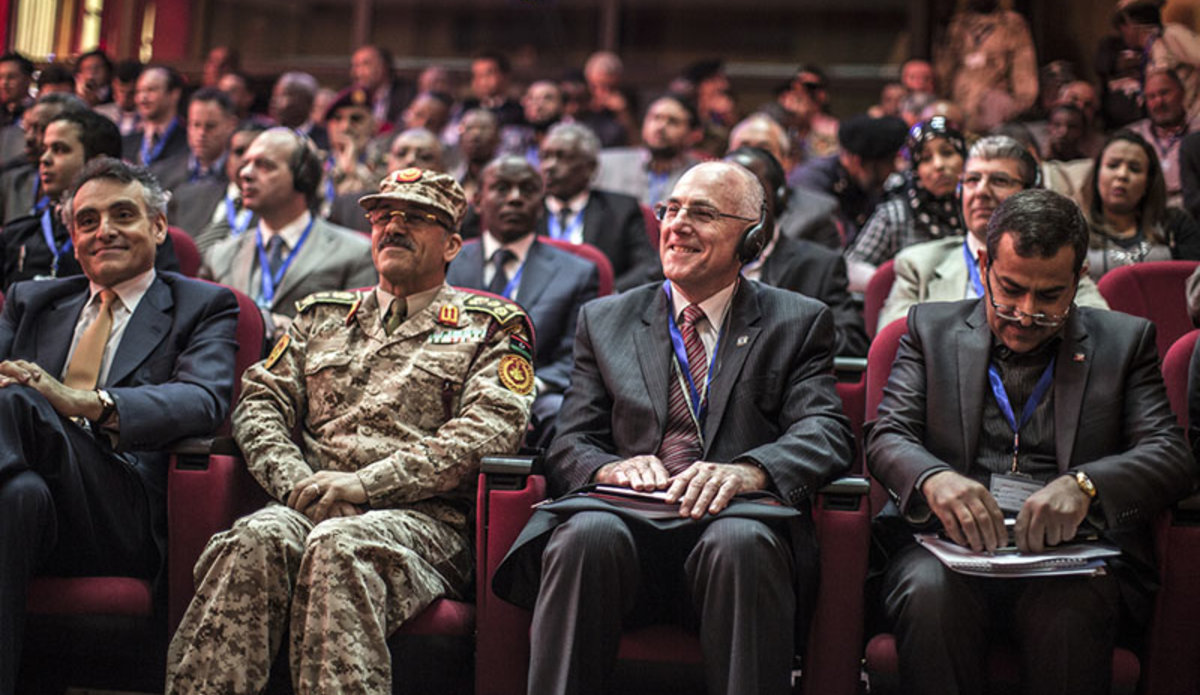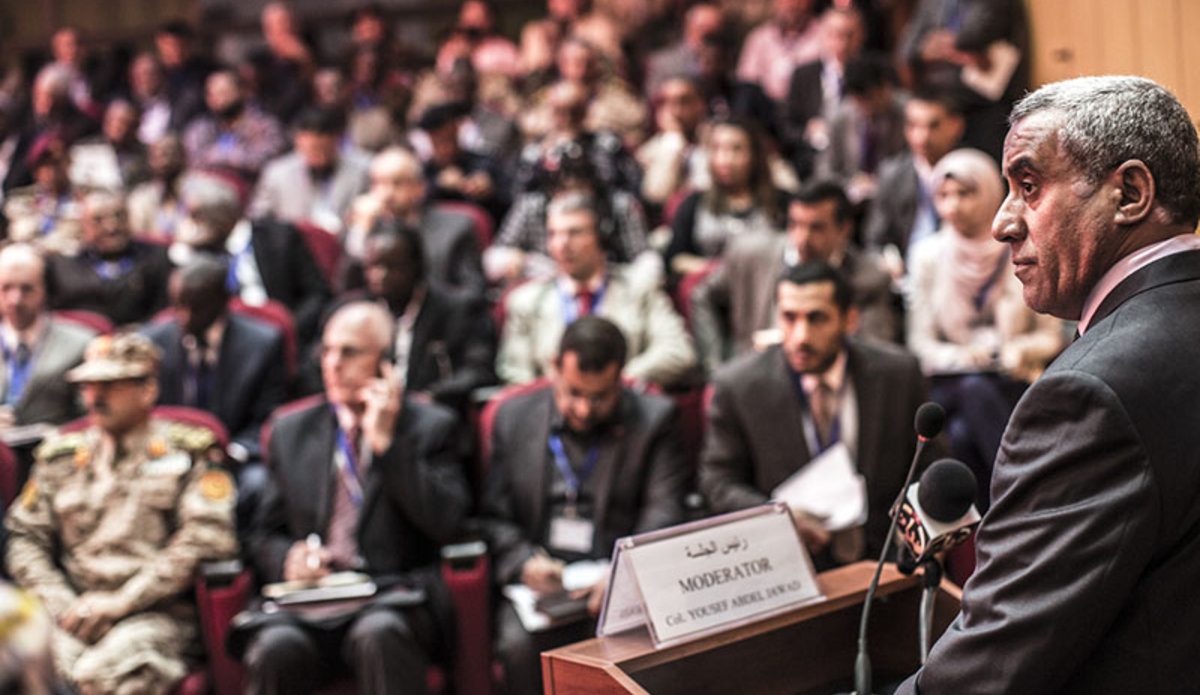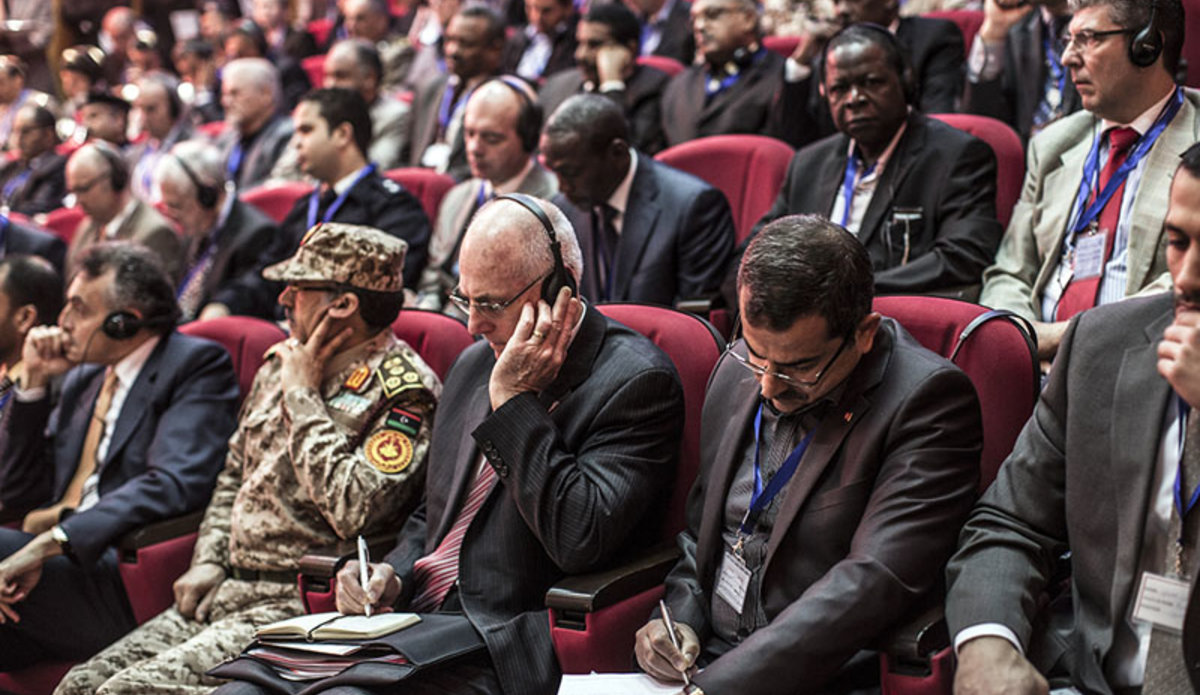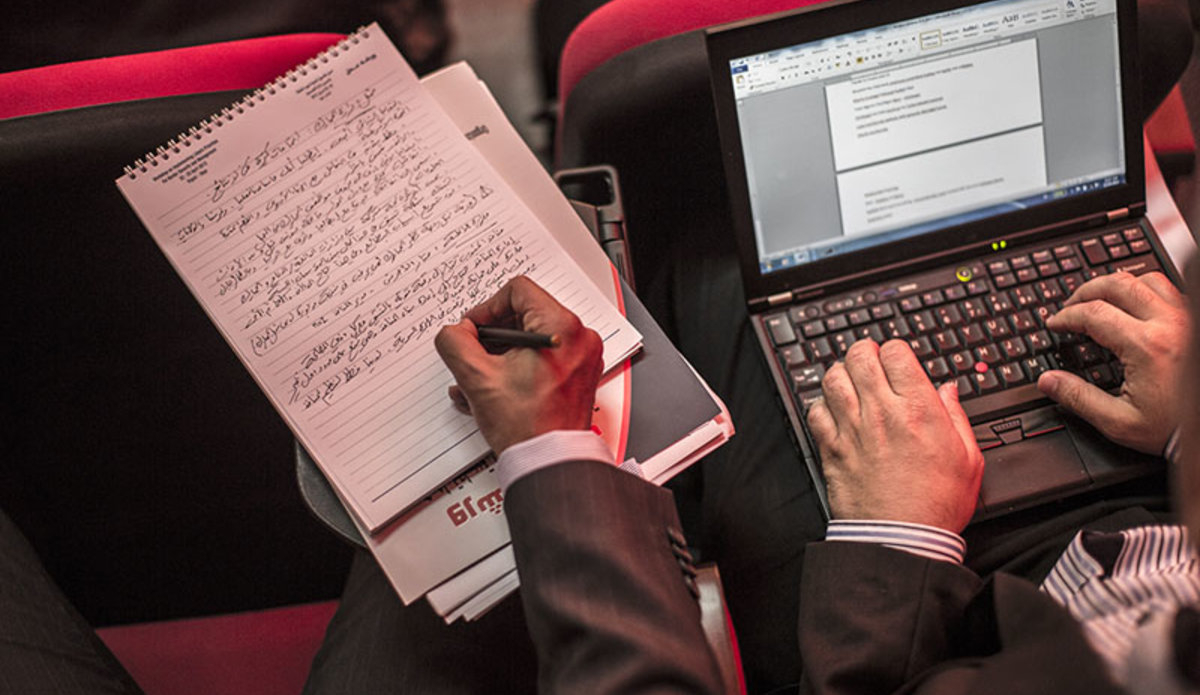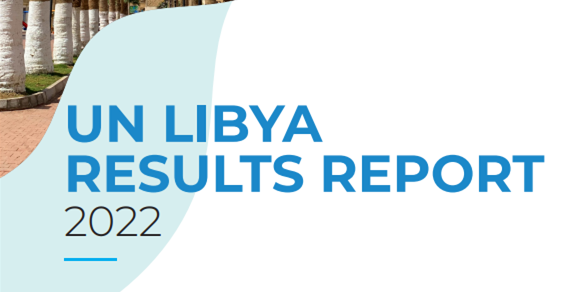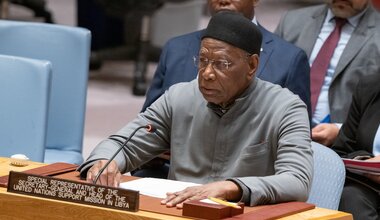Libyan Border Security: Feverish Determination, Sobering Reality, 23 May 2013
There is certainly no lack of Libyan will when it comes to securing the country's borders, but the difficulty the Libyans face is the shortage of modern equipment, technology, experienced personnel and not least the lack of comprehensive plan to ensure the vast frontier is sealed to militants as well as smugglers of migrants, goods and drugs.
A workshop hosted by the Ministry of Foreign Affairs and the Ministry of Defence with the support of the UN Support Mission in Libya (UNSMIL) 22-23April heard from Libyan counterparts the feverish determination of a nation rebuilding after a violent revolution and the cold realities on the ground.
"The challenges are not easy. The mission is difficult and we need assistance," said Brigadier-General Abdul-Khaleq Al-Senussi, Chief of Staff of the Libyan Border Guard Force.
The "Workshop on Implementing Libya's Priorities for Border Security" is part of United Nations efforts to assist Libya in rebuilding and reforming its security sector in line with the priorities identified by the Libyan Government at the International Ministerial Conference in Paris in February 2013. The workshop aimed to outline a plan of action that identifies the immediate priorities in the area of border security and management, clarify the responsibility of each entity in the border security sector and discuss international support to implementing these immediate priorities.
At its conclusion, the workshop's recommendations included establishing an integrated border security operations centre comprising representatives of the Border Guards, the police, customs, coastguard and others , better cooperation, coordination and information sharing among Libyan security bodies involved in border security, coordination and information sharing. The workshop also recommended integrating revolutionary brigades and other local groups into Libya's border security and management system as well as rehabilitating border units through capacity-building and improving infrastructure and training; increasing effectiveness of forces through enhanced mobility of patrols on the ground; and strengthening reconnaissance capacity from the air and operational capacity at sea.
At the opening of the workshop, Brigadier General Al-Senussi underlined the difficulties facing the Libyans. He said his regular Border Guard force is at 25 percent strength level and it has to rely on the revolutionary brigades who are guarding the border areas to patrol. His forces needed weapons, vehicles and modern technology.
While thanking the UN and the European Union for their advisory support, Al-Senussi pointed out that security of the region at large depended on how effectively Libya secures its borders. "We need all to stand by us and help us ... We need a concerted effort because maintaining security and stability means stability for the European Union and the Mediterranean area."
Saleh Al-Makhzoum, Deputy President of the General National Congress, pointed out that security and development were interlinked given the remoteness of the border regions particularly in the southern part of the country.
"There is frustration among the young because economic life has ground to a halt in those areas," he said. "Development, small and medium size projects can absorb the youths and reduce tensions. This will turn them away from smuggling and terrorism," he said.
Abdul-Rahman Al-Ageli, of the Decision Support Office at the Prime Minister's Office, said the workshop is an opportunity. "Coordination is very important on the strategic level," he said, adding that the problem today is lack of information because there is no mechanism to gather and analyze the information.
Brigadier-General Salem Al-Gharabi, Director of the Customs Authority, complained that previous meetings have yielded little progress on the issue. He called for coordination among Libyan security branches.
Mukhtar Hassan Al-Ahrash, director of the Border Points, said equipment and technology should be able to offset the disadvantage of a vast country with a small population. He noted successes on the coastal border areas and in the airspace but not in the desert south.
Al-Ahrash said the countries that fear smuggling of weapons should stand up and support Libya, through training and technical expertise and modern equipment.
Lieutenant-Colonel Atef Salem, representing the Libyan Navy, explained how the lack of clarity in jurisdiction among the various bodies of the State was reflecting negatively on the ground. "Defining jurisdiction is important so no one would get confused," he said.
Recognising that any border has two sides, the workshop participants recommended reactivating and introducing bilateral cooperation agreements with neighbouring states. They also emphasised the issues of the South, calling for the opening of new training centres in the region; raising awareness of potential dangers such as organized crime; improving living conditions and establishing a mechanism for national reconciliation including among tribes and Internally Displaced Persons.
 United Nations Peacekeeping
United Nations Peacekeeping UN
UN
